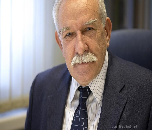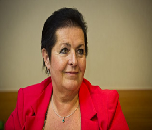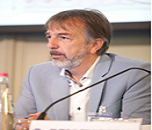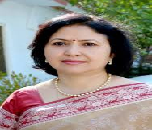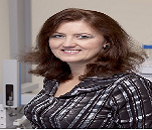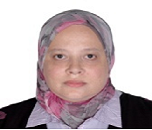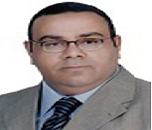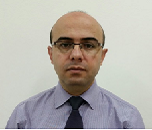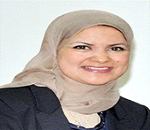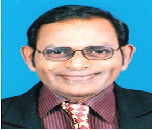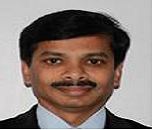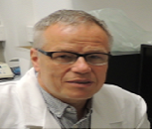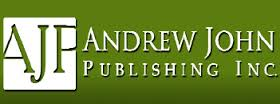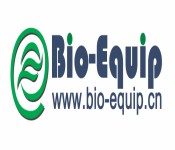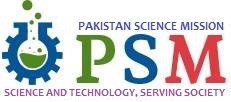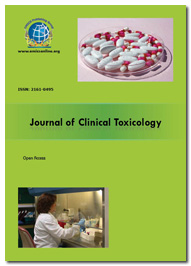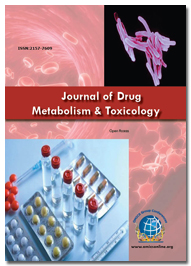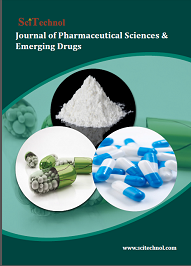Theme: Communing Toxicology & Pharmacology Investigations for Human Health
Toxicology Congress 2017
We welcome you to the 8th World Congress on Toxicology and Pharmacology which is going to be held during April 13-15, 2017 at Dubai, UAE with the theme “Communing Toxicology & Pharmacology Investigations for Human Health”. Toxicology Congress 2017 will bring together Leading Principle Investigators, Pharmacologists, Toxicologists, Clinicians, CRO’s, Biotech and Pharmaceutical industry professionals to discuss the advancements in health care therapeutics and clinical trials.
Track 1: Toxicology
Toxicology is the scientific study of harmful effects of chemical, biological and physical agents in biological systems that establish the extent of damage in living organisms. It includes observing symptoms, mechanisms, detection and treatments of toxic substances, in certain relation to the poisoning of humans. It consists of environmental agents and chemical compounds, as well as Pharmaceutical Compounds that are manufactured for medical use by humans. These substances may produce toxic effects in living organisms including disturbance in growth patterns, discomfort, disease and death. Toxicology is the qualitative and quantitative study of the adverse effects of chemicals and other materials on living organisms. The dose of the substance is an important factor in toxicology, as it has a relationship with the effects on the individual. Factors that influence toxicity include the dose, the route of exposure, shape and structure of the chemical, the species, individual human factors and environment. Toxicology and Pharmacology are both studies that involve in assessing the properties of chemicals and their actions on the body, but differ significantly in other areas. Pharmacology focuses on the therapeutic effects of pharmaceutical substances and how they can be used most effectively for medical purpose. Whereas, toxicology is closely related to the adverse effects that can occur in living organisms that come into contact with chemical compounds. Toxicologists are also concerned with determining the risk of certain substances with risk assessment tools.
Related Conferences: Toxicology Conferences | Pharmacology Conferences | Pharmaceutical Conferences
9th Global Toxicology and Pharmacology Meeting, July 17-19, 2017, Lisbon, Portugal; 10th Global Summit on Toxicology and Applied Pharmacology, July 24-26, 2017, Toronto, Canada; 12th Applied Pharmacology Summit, October 2-4, 2017, London, UK; 13th International Conference on Genetic Toxicology and Cancer Biology, November 2-3, 2017, San Antonio, USA; 15th International Conference on Toxicology and Clinical Pharmacology, December 14-16, 2017, Dubai, UAE; 16th International Conference on Occupational Toxicology and Industrial Health, December 14-15, 2017, Dubai, UAE; 14th International Conference on Forensic Science and Clinical Toxicology, November 2-3, 2017, San Antonio, USA; 11th International Conference on Environmental Toxicology and Ecological Risk Assessment, September 21-22, 2017, Toronto, Canada; 3rd International Conference on Genomics and Toxicogenomics, September 21-22, 2017, Toronto, Canada; The XIV International Congress of Toxicology (ICTXIV), October 02-06, 2016, Mexico; Argentine Toxicological Association 34th Interdisciplinary Toxicology Conference, September 21–23, 2016, Cordoba, Argentina; 19th International Congress on In Vitro Toxicology– French Society of Toxicology, October 17–20, 2016, Juan-les-Pins, France; 53rd European Congress of the European Societies of Toxicology, September 10–13, 2017, Bratislava, Slovakia; 7th International Conference on Environmental Mutagens in Human Populations (ICEMHP), November 2016, Thailand; Society of Environmental Toxicology and Chemistry (SETAC); IUTOX: International Union of Toxicology; EUROTOX; SOT: Society of Toxicology; ABD: American Board of Toxicology
Track 2: Toxicology and Risk Assessment
Chemical risk assessment methodologies facilitate both scientific and data-informed decision making and also is progressively expected to provide more precise predictions of actual risk. Risk assessment includes the characterization of the uncertainties inherent in the process of inferring risk. Toxicology data helps to determine the risk of exposure to certain chemicals. The practices of risk assessment are used to assess the related health risks to provide a scientific basis for regulatory standards development and risk management decision making for human health protection. The presence of chemicals in our environment is a subject of deep interest owing to the many potential adverse health effects to humans following exposure to these chemicals. The validity of an estimation of risk derived from a risk assessment depends greatly on the quality and accuracy of data. Where data do not exist or are contradictory, regulatory agencies are required to rely on default values, uncertainty factors, and modeling approaches to fill in the blanks. These defaults and extrapolations introduce uncertainty into the risk estimates. New methodologies and testing methods could fill key data gaps, clarify data inconsistencies, or otherwise reduce uncertainty. If applied appropriately, these approaches have the potential to improve the accuracy and scientific credibility of regulatory decision making. Human health risk assessment is the process of investigating information to determine whether an environmental hazard might cause harm to exposed persons. The risk-assessment process incorporates many disciplines of Toxicology.
Related Conferences: Risk Assessment Conferences | Toxicology Conferences | Environmental Toxicology Conferences
11th International Conference on Ecological Risk Assessment , September 21-22, 2017, Toronto, Canada; 14th International Conference on Clinical Toxicology, November 2-3, 2017, San Antonio, USA; 16th International Conference on Occupational Toxicology and Industrial Health, December 14-15, 2017, Dubai, UAE; 9th Global Pharmacology and Toxicology Meeting, July 17-19, 2017, Lisbon, Portugal; 10th Global Summit on Toxicology and Applied Pharmacology, July 24-26, 2017, Toronto, Canada; 13th International Conference on Cancer Biology and Genetic Toxicology, November 2-3, 2017, San Antonio, USA; 12th Euro-Global Summit on Applied Pharmacology and Toxicology, October 2-4, 2017, London, UK; 15th International Conference on Toxicology and Clinical Pharmacology, December 14-16, 2017, Dubai, UAE; 3rd International Conference on Genomics and Toxicogenomics, September 21-22, 2017, Toronto, Canada; Argentine Toxicological Association 34th Interdisciplinary Toxicology Conference, September 21–23, 2016; 7th International Conference on Environmental Mutagens in Human Populations (ICEMHP), November 2016, Thailand; Society of Toxicology’s 56th Annual Meeting, March 12–16, 2017, Baltimore, Maryland, USA; The XIV International Congress of Toxicology (ICTXIV), October 02-06, 2016, Mexico, ICT 2016; 11th International Particle Toxicology Conference September 26- 30 2016, Singapore; Society of Toxicology of Canada; Swedish Society of Toxicology; Estonian Society of Toxicology; British Toxicology Society; Argentine Toxicological Association
Track 3: Analytical Toxicology
Analytical toxicology is the detection, identification, and measurement of foreign compounds in biological and other specimens. Analytical methods are available for a wide range of compounds like chemicals, pesticides, drugs and natural toxins. Analytical toxicology is used in the diagnosis, management, prognosis, and prevention of poisoning. Analytical toxicology laboratories may be involved in activities such as the assessment of exposure following chemical incidents, therapeutic drug monitoring, monitoring the drugs of abuse and forensic analyses. They may also be involved in research like determining the pharmacokinetic and toxicokinetic properties. Liquid chromatography-mass spectrometry and Gas chromatography-mass spectrometry are generally used today in analytical toxicology. While planning the development of an analytical toxicology service there are a number of considerations. These comprise the pattern of poisoning and, therefore, the specific substances for which analyses will be required, the existing infrastructure, the availability of ongoing technical support, spare parts and reagents from suppliers, the availability of a team of trained staff and the capacity to train new staff and provide continuing professional development.
Related Conferences: Analytical Toxicology Conferences | Clinical Toxicology Conferences | Forensic Conferences
15th International Summit on Toxicology and Clinical Pharmacology, December 14-16, 2017, Dubai, UAE; 14th International Clinical Toxicology Meeting , November 2-3, 2017, San Antonio, USA; 11th International Conference on Environmental Toxicology and Ecological Risk Assessment, September 21-22, 2017, Toronto, Canada; 16th International Conference on Occupational Toxicology and Industrial Health, December 14-15, 2017, Dubai, UAE; 9th Global Pharmacology and Toxicology Meeting, July 17-19, 2017, Lisbon, Portugal; 10th Global Summit on Applied Pharmacology and Toxicology, July 24-26, 2017, Toronto, Canada; 13th International Conference on Cancer Biology and Genetic Toxicology, November 2-3, 2017, San Antonio, USA; 12th Euro-Global Summit on Applied Pharmacology and Toxicology, October 2-4, 2017, London, UK; 3rd International Conference on Toxicogenomics and Genomics, September 21-22, 2017, Toronto, Canada; 9th Annual Australasian College of Toxicology & Risk Assessment, September 22–23, 2016, Adelaide, Australia; Australasian Society of Clinical and Experimental Pharmacologists & Toxicologists-MPGPCR 2016 Joint Scientific Meeting, November 27–30, 2016, Melbourne, Australia; 19th International Congress on In Vitro Toxicology– French Society of Toxicology, ESTIV & SPTC Joint Congress, October 17–20, 2016, Juan-les-Pins, France; ANZFSS 23rd International Symposium on the Forensic Sciences, 18-23 September, 2016, New Zealand; 53rd European Congress of the European Societies of Toxicology, September 10–13, 2017, Bratislava, Slovakia; IUTOX: International Union of Toxicology; EUROTOX; SOT: Society of Toxicology; German Society of Toxicology; Academy of Toxicological Sciences
Track 4: Genotoxicity
Genotoxicity describes the property of chemical compounds that damages the genetic information within a cell causing mutations, which may lead to cancer. Genotoxic chemicals exert their adverse effect through interaction with genetic material (DNA) of cells. Genotoxicity testing of new chemical entities is an integral part of the drug development process and is a regulatory necessity prior to the approval of new drugs. To assay for genotoxic molecules, researchers assay for DNA damage in cells exposed to the toxic substrates. Techniques like in vitro and in vivo Toxicology Tests, Ames Assay and Comet Assay have been developed to determine the chemicals' potential to cause DNA damage that may lead to cancer. Genotoxicity tests are designed to detect drugs which can cause genetic damage directly or indirectly by various mechanisms of action. Compounds which are identified as genotoxic in these tests have the ability to be human carcinogens and ultimately may induce cancer and heritable defects. Genotoxicity testing of new chemical entities is an integral part and is a regulatory requirement prior to the approval of new drugs, in Drug Development process. Late stage failures can reduced by identifying genotoxicity at an early stage in Drug Discovery rather than during regulatory assessment.
Related Conferences: Genetic Toxicology Conferences | Medical Toxicology Conferences | Toxicology Conferences
3rd International Conference on Toxicogenomics and Genomics, September 21-22, 2017, Toronto, Canada; 9th Global Symposium on Pharmacology and Toxicology, July 17-19, 2017, Lisbon, Portugal; 10th Global Summit on Toxicology and Applied Pharmacology, July 24-26, 2017, Toronto, Canada; 11th International Conference on Environmental Toxicology and Ecological Risk Assessment, September 21-22, 2017, Toronto, Canada; 12th Applied Pharmacology Summit, October 2-4, 2017, London, UK; 13th International Conference on Genetic Toxicology and Cancer Biology, November 2-3, 2017, San Antonio, USA; 14th International Conference on Forensic Science and Clinical Toxicology, November 2-3, 2017, San Antonio, USA; 15th International Congress on Toxicology and Clinical Pharmacology, December 14-16, 2017, Dubai, UAE; 16th International Meetings on Occupational Toxicology and Industrial Health, December 14-15, 2017, Dubai, UAE; The XIV International Congress of Toxicology (ICTXIV), October 02-06, 2016, Mexico; 19th International Congress on In Vitro Toxicology– French Society of Toxicology, ESTIV & SPTC Joint Congress, October 17–20, 2016, Juan-les-Pins, France; Argentine Toxicological Association 34th Interdisciplinary Toxicology Conference, September 21–23, 2016, Cordoba, Argentina; 53rd European Congress of the European Societies of Toxicology, September 10–13, 2017, Bratislava, Slovakia; 7th International Conference on Environmental Mutagens in Human Populations (ICEMHP), November 2016, Thailand; Egyptian Society of Toxicology; French Society of Clinical Toxicology; Japanese Society of Toxicology; Latvian Society of Toxicology; Polish Society of Toxicology
Track 5: Forensic Toxicology
Forensic toxicology uses toxicology and other disciplines such as analytical chemistry, clinical chemistry and pharmacology to aid medical or legal investigation of drug use, poisoning and death. It deals with the investigation of toxic substances, poisonous products and environmental chemicals. The primary concern of Forensic Toxicology is to obtain and interpret the results. Toxicological analysis can be done to various kinds of samples. Forensic toxicology involves not only determining the presence of Toxic substance in the post-mortem body, but how the body’s natural processes affect the substance, including chemical change and dilution. Forensic toxicologists perform scientific tests on tissue samples and bodily fluids to identify any chemicals or drugs present in the body. The choice of method for testing is highly depends on the material on which the testing is performed and what kind of substance one expects to find. Analytical methods used in forensic toxicology should be carefully tested by performing a validation of the method to ensure definite results at all times. Forensic toxicologists also work on cases involving environmental contamination, to determine the impact of chemical spills on living organisms. Investigators rely on the forensic toxicologist to make reliable conclusions about the impact a specific amount of a specific substance would have on a specific individual. Currently, forensic toxicology is the study of drugs, alcohol and poisons, including their chemical composition, identification and preparations. It comprises knowledge about the absorption, distribution and elimination process of such substances in the body, as well as the manner in which the body responds to their presence and the factors which define Drug Safety and efficacy.
Related Conferences: Forensic Toxicology Conferences | Clinical Toxicology Conferences | Forensic Conferences
14th International Conference on Forensic Science and Clinical Toxicology, November 2-3, 2017, San Antonio, USA; 16th International Meetings on Occupational Toxicology and Industrial Health, December 14-15, 2017, Dubai, UAE; 15th Global Congress on Toxicology and Clinical Pharmacology, December 14-16, 2017, Dubai, UAE; 10th Global Summit on Toxicology and Applied Pharmacology, July 24-26, 2017, Toronto, Canada; 3rd International Conference on Toxicogenomics and Genomics, September 21-22, 2017, Toronto, Canada; 12th Applied Pharmacology Summit, October 2-4, 2017, London, UK; 9th Global Symposium on Pharmacology and Toxicology, July 17-19, 2017, Lisbon, Portugal; 11th International Conference on Environmental Toxicology and Ecological Risk Assessment, September 21-22, 2017, Toronto, Canada; 13th International Conference on Genetic Toxicology and Cancer Biology, November 2-3, 2017, San Antonio, USA; ANZFSS 23rd International Symposium on the Forensic Sciences, 18-23 September, 2016, New Zealand; 9th Annual Australasian College of Toxicology & Risk Assessment, September 22–23, 2016, Adelaide, Australia; Argentine Toxicological Association 34th Interdisciplinary Toxicology Conference, September 21–23, 2016; 7th International Conference on Environmental Mutagens in Human Populations (ICEMHP), November 2016, Thailand; The XIV International Congress of Toxicology (ICTXIV), October 02-06, 2016, Mexico, ICT 2016; Estonian Society of Toxicology; European Association of Poison Centres and Clinical Toxicologists; EUROTOX; Korean Society of Toxicology; Russian Society of Toxicology
Track 6: Food Safety and Environmental Toxicology
Food safety is a discipline which describes preparation, handling and storage of food in ways that avoid foodborne illness. This involves a number of routines that should be followed to avoid potentially severe health hazards. Food safety includes the origins of food including the practices relating to food labelling, food additives, pesticide residues and food hygiene as well as policies on Biotechnology and food. Food can transmit disease from person to person as well as help as a growth medium for bacteria that can cause food poisoning. In developed countries there are sophisticated standards for food preparation, whereas in lesser developed countries the main issue is simply the availability of sufficient safe water, which is usually a critical item. Environmental toxicology is a field of science concerned with the study of the harmful effects of various physical, chemical and biological agents on living organisms. Harmful effects of biological and chemical agents can include toxicants from pesticides, pollutants, fertilizers and insecticides all of which can impact an organism and its population through shifts in species diversity and abundance. Living organisms can be exposed to Toxicants at various stages of their life cycle. The amount of toxicity can vary depending on where the organism is found within its food web.
Related Conferences: Environmental Toxicology Conferences | Food Safety Conferences | Toxicology Conferences
11th International Conference on Environmental Toxicology and Ecological Risk Assessment, September 21-22, 2017, Toronto, Canada; 13th International Conference on Cancer Biology and Genetic Toxicology, November 2-3, 2017, San Antonio, USA; 15th International Summit on Toxicology and Clinical Pharmacology, December 14-16, 2017, Dubai, UAE; 14th International Clinical Toxicology Meeting , November 2-3, 2017, San Antonio, USA; 16th International Conference on Occupational Toxicology and Industrial Health, December 14-15, 2017, Dubai, UAE; 9th Global Pharmacology and Toxicology Meeting, July 17-19, 2017, Lisbon, Portugal; 10th Global Summit on Applied Pharmacology and Toxicology, July 24-26, 2017, Toronto, Canada; 12th Euro-Global Summit on Applied Pharmacology and Toxicology, October 2-4, 2017, London, UK; 3rd International Conference on Toxicogenomics and Genomics, September 21-22, 2017, Toronto, Canada; 7th International Conference on Environmental Mutagens in Human Populations (ICEMHP), November 2016, Thailand; 11th International Particle Toxicology Conference September 26- 30 2016, Singapore; Argentine Toxicological Association 34th Interdisciplinary Toxicology Conference, September 21–23, 2016; Society of Toxicology’s 56th Annual Meeting, March 12–16, 2017, Baltimore, Maryland, USA; The XIV International Congress of Toxicology (ICTXIV), October 02-06, 2016, Mexico, ICT 2016; German Society of Toxicology; Hellenic Society of Toxicology; International Neurotoxicology Association (INA); Iranian Society of Toxicology (IST); Irish Society of Toxicology
Track 7: Toxicology Applications
Application of procedures and principles of toxicology to prevent adverse health effects from drug candidates. To estimate the safety of potential drug candidates in the drug development process is the primary objective of toxicology studies. This can be done by using relevant animal models and validated procedures. The ultimate goal is to translate the animal model responses into an understanding of the risk for human subjects. To this end, the toxicologist must be conscious of the international guidelines for safety evaluation, as well as traditional and nontraditional toxicology models. Toxicology profile consists of safety Pharmacology, acute and subchronic toxicology, chronic toxicology, ADME studies, genetic toxicology, reproductive and developmental toxicology and an evaluation of carcinogenic potential. The development of novel drugs requires non-clinical safety studies to be performed on candidate drug compounds. Such studies typically assess general toxicology safety pharmacology and Genetic Toxicity test batteries. These studies notify development of candidate drugs from the “discovery phase” through clinical development to regulatory submission and registration. Less importance was placed on the evaluation of safety issues for projects while still in the drug design phase. Therefore, this led to a number of major failures of candidate drugs in early development due to toxicological issues. In response to this costly attrition, many pharmaceutical companies have now dedicated in “Discovery-phase Toxicology” or “Discovery Safety” to detect likely hazards and to take steps to design out or significantly reduce unwanted properties at an earlier stage, with the ultimate aim of improving the probability of success in non-clinical and clinical drug development.
Related Conferences: Toxicology Conferences | Clinical Toxicology Conferences | Medical Toxicology Conferences
11th International Symposium on Environmental Toxicology and Ecological Risk Assessment, September 21-22, 2017, Toronto, Canada; 3rd International Symposium on Toxicogenomics and Genomics, September 21-22, 2017, Toronto, Canada; 12th Euro-Global Summit on Applied Pharmacology and Toxicology, October 2-4, 2017, London, UK; 13th International Summit on Cancer Biology and Genetic Toxicology, November 2-3, 2017, San Antonio, USA; 15th International Meeting on Toxicology and Clinical Pharmacology, December 14-16, 2017, Dubai, UAE; 14th International Clinical Toxicology Meeting , November 2-3, 2017, San Antonio, USA; 16th International Congress on Occupational Toxicology and Industrial Health, December 14-15, 2017, Dubai, UAE; 9th Global Pharmacology and Toxicology Meeting, July 17-19, 2017, Lisbon, Portugal; 10th Global Conference on Applied Pharmacology and Toxicology, July 24-26, 2017, Toronto, Canada; American College of Toxicology- 37th Annual Meeting on Toxicology, November 6–9, 2016, Baltimore Marriott Waterfront, Baltimore, Maryland; 19th International Congress on In Vitro Toxicology– French Society of Toxicology, ESTIV & SPTC Joint Congress, October 17–20, 2016, Juan-les-Pins, France; 9th Annual Australasian College of Toxicology & Risk Assessment, September 22–23, 2016, Adelaide, Australia; 7th International Conference on Environmental Mutagens in Human Populations (ICEMHP), November 2016, Thailand; The XIV International Congress of Toxicology (ICTXIV), October 02-06, 2016, Mexico, ICT 2016; German Society of Toxicology; Academy of Toxicological Sciences; ABD: American Board of Toxicology; STC: Society of Toxicology of Canada; American College of Medical Toxicology
Track 8: Pharmacology
Pharmacology is the scientific study of drug action on biological systems. It is the study of the interactions between a living organism and drugs. If substances have medicinal properties, they are considered pharmaceuticals. Pharmacological studies range from the effects of chemical agents upon subcellular mechanisms, to those that deal with the potential hazards of pesticides and herbicides, to those that focus on the treatment of major diseases by drug therapy. It involves examining the interactions between chemical substances and living systems, with a view to determining the properties of drugs and drug actions, including the drug molecules and drug receptors interactions and how these interactions elicit an effect. The study of chemicals requires good knowledge of the biological system affected. With the knowledge of biochemistry and cell biology increasing, the field of pharmacology has also changed significantly. It is now possible to design chemicals that act on specific cellular signaling or metabolic pathways by affecting sites directly on cell-surface receptors, through molecular analysis of receptors.
Related Conferences: Pharmacology Conferences | Toxicology Conferences | Pharmaceutical Conferences
10th Global Conference on Applied Pharmacology and Toxicology, July 24-26, 2017, Toronto, Canada; 15th International Meeting on Clinical Pharmacology and Toxicology, December 14-16, 2017, Dubai, UAE; 9th Global Toxicology and Pharmacology Meeting, July 17-19, 2017, Lisbon, Portugal; 12th Euro-Global Summit on Applied Pharmacology and Toxicology, October 2-4, 2017, London, UK; 11th International Symposium on Environmental Toxicology and Ecological Risk Assessment, September 21-22, 2017, Toronto, Canada; 3rd International Symposium on Toxicogenomics and Genomics, September 21-22, 2017, Toronto, Canada; 13th International Summit on Cancer Biology and Genetic Toxicology, November 2-3, 2017, San Antonio, USA; 14th International Clinical Toxicology Meeting , November 2-3, 2017, San Antonio, USA; 16th International Congress on Occupational Toxicology and Industrial Health, December 14-15, 2017, Dubai, UAE; Australasian Society of Clinical and Experimental Pharmacologists & Toxicologists-MPGPCR 2016 Joint Scientific Meeting, November 27–30, 2016, Melbourne, Australia; American College of Toxicology- 37th Annual Meeting on Toxicology, November 6–9, 2016, Baltimore Marriott Waterfront, Baltimore, Maryland; ANZFSS 23rd International Symposium on the Forensic Sciences, 18-23 September, 2016, New Zealand; The XIV International Congress of Toxicology (ICTXIV), October 02-06, 2016, Mexico, ICT 2016; Society of Toxicology 56th Annual Meeting, March 12–16, 2017, Baltimore, Maryland, USA; Society of Environmental Toxicology and Chemistry (SETAC); IUTOX: International Union of Toxicology; EUROTOX; SOT: Society of Toxicology; German Society of Toxicology
Track 9: Applied Pharmacology
Pharmacology deals with the basis, therapeutics uses of drugs, physiological action and properties of action. Applied pharmacology helps to measure the data obtained from the clinical studies and can correlate it with the clinical processes. Applied pharmacology is the study of how drugs affect body. Drugs can be used to both maintain a healthy lifestyle and treat or cure disease. It also provides explanation for different drugs having connected with the pharmacological action. It gives clarifications about drug interactions and the action of various drugs on the many organs in the body when they are in diseased state with side effects contradictions. Applied pharmacology makes it possible not only to explain to the doctor the action of drugs in the human body, but also in evaluating the efficacy of drugs in a particular disease condition.
Related Conferences: Pharmacology Conferences | Pharmaceutical Meetings | Clinical Pharmacology Conferences
15th International Meeting on Clinical Pharmacology and Toxicology, December 14-16, 2017, Dubai, UAE; 9th Global Toxicology and Pharmacology Meeting, July 17-19, 2017, Lisbon, Portugal; 12th Euro-Global Summit on Applied Pharmacology and Toxicology, October 2-4, 2017, London, UK; 10th Global Conference on Applied Pharmacology and Toxicology, July 24-26, 2017, Toronto, Canada; 11th International Symposium on Environmental Toxicology and Ecological Risk Assessment, September 21-22, 2017, Toronto, Canada; 3rd International Symposium on Toxicogenomics and Genomics, September 21-22, 2017, Toronto, Canada; 13th International Summit on Cancer Biology and Genetic Toxicology, November 2-3, 2017, San Antonio, USA; 14th International Clinical Toxicology Meeting , November 2-3, 2017, San Antonio, USA; 16th International Congress on Occupational Toxicology and Industrial Health, December 14-15, 2017, Dubai, UAE; ANZFSS 23rd International Symposium on the Forensic Sciences, 18-23 September, 2016, New Zealand; Australasian Society of Clinical and Experimental Pharmacologists & Toxicologists-MPGPCR 2016 Joint Scientific Meeting, November 27–30, 2016, Melbourne, Australia; American College of Toxicology- 37th Annual Meeting on Toxicology, November 6–9, 2016, Baltimore Marriott Waterfront, Baltimore, Maryland; Society of Toxicology 56th Annual Meeting, March 12–16, 2017, Baltimore, Maryland, USA; The XIV International Congress of Toxicology (ICTXIV), October 02-06, 2016, Mexico, ICT 2016; The Toxicology Society of South Africa; The Toxicology Society of Taiwan; The Turkish Society of Toxicology; Toxicology Cuban Society (SOCTOX); Ukrainian Toxicology Society
Track 10: Environmental Pharmacology
Environmental pharmacology is a moderately new and rising forte of pharmacology. It includes the investigation of quality environment connection, drug-environment connection and poison environment cooperation. It is essential to accentuate at this phase the distinctive terms utilized tradable with natural Pharmacology incorporate ecophar†macology, and pharmacoenvironmentology, Ecotoxicology. Nonetheless, a nearby likeness exists between ecological pharmacology and ecotoxicology. Environmental pharmacology involves the investigation of ecological science, drug, nature, hereditary qualities and science.
Related Conferences: Environmental pharmacology Conferences | Ecological Conferences | Pharma Conferences
11th International Conference on Environmental Toxicology and Ecological Risk Assessment, September 21-22, 2017, Toronto, Canada; 13th International Conference on Cancer Biology and Genetic Toxicology, November 2-3, 2017, San Antonio, USA; 15th International Summit on Toxicology and Clinical Pharmacology, December 14-16, 2017, Dubai, UAE; 14th International Clinical Toxicology Meeting , November 2-3, 2017, San Antonio, USA; 16th International Conference on Occupational Toxicology and Industrial Health, December 14-15, 2017, Dubai, UAE; 9th Global Pharmacology and Toxicology Meeting, July 17-19, 2017, Lisbon, Portugal; 10th Global Summit on Applied Pharmacology and Toxicology, July 24-26, 2017, Toronto, Canada; 12th Euro-Global Summit on Applied Pharmacology and Toxicology, October 2-4, 2017, London, UK; 3rd International Conference on Toxicogenomics and Genomics, September 21-22, 2017, Toronto, Canada; 7th International Conference on Environmental Mutagens in Human Populations (ICEMHP), November 2016, Thailand; 11th International Particle Toxicology Conference September 26- 30 2016, Singapore; Argentine Toxicological Association 34th Interdisciplinary Toxicology Conference, September 21–23, 2016; Society of Toxicology’s 56th Annual Meeting, March 12–16, 2017, Baltimore, Maryland, USA; The XIV International Congress of Toxicology (ICTXIV), October 02-06, 2016, Mexico, ICT 2016; SETAC: Society of Environmental Toxicology and Chemistry; IUTOX: International Union of Toxicology; American College of Medical Toxicology; Argentine Toxicological Association; Austrian Society of Toxicology
Track 11: Pharmacological Testing
Pharmacological Testing includes both Pharmacologic stress testing and nuclear stress test. Whereas the Pharmacologic stress testing is the set up after activity testing, is an analytic system in which cardiovascular anxiety affected by pharmacologic operators is shown in patients with diminished useful limit or in patients who can't work out. And Pharmacological nuclear stress test is a demonstrative test used to assess blood stream to the heart. Amid the test, a little measure of radioactive tracer is infused into a vein. A unique camera, called a gamma camera, identifies the radiation discharged by the tracer to create PC pictures of the heart.
Related Conferences: Pharmacological Testing Conferences | Pharmacovigilance Conferences | Pharmacology Conferences
12th Euro-Global Summit on Applied Pharmacology and Toxicology, October 2-4, 2017, London, UK; 10th Global Conference on Applied Pharmacology and Toxicology, July 24-26, 2017, Toronto, Canada; 15th International Meeting on Clinical Pharmacology and Toxicology, December 14-16, 2017, Dubai, UAE; 9th Global Toxicology and Pharmacology Meeting, July 17-19, 2017, Lisbon, Portugal; 11th International Symposium on Environmental Toxicology and Ecological Risk Assessment, September 21-22, 2017, Toronto, Canada; 3rd International Symposium on Toxicogenomics and Genomics, September 21-22, 2017, Toronto, Canada; 13th International Summit on Cancer Biology and Genetic Toxicology, November 2-3, 2017, San Antonio, USA; 14th International Clinical Toxicology Meeting , November 2-3, 2017, San Antonio, USA; 16th International Congress on Occupational Toxicology and Industrial Health, December 14-15, 2017, Dubai, UAE; Australasian Society of Clinical and Experimental Pharmacologists & Toxicologists-MPGPCR 2016 Joint Scientific Meeting, November 27–30, 2016, Melbourne, Australia; The XIV International Congress of Toxicology (ICTXIV), October 02-06, 2016, Mexico, ICT 2016; Society of Toxicology 56th Annual Meeting, March 12–16, 2017, Baltimore, Maryland, USA; American College of Toxicology- 37th Annual Meeting on Toxicology, November 6–9, 2016, Baltimore Marriott Waterfront, Baltimore, Maryland; ANZFSS 23rd International Symposium on the Forensic Sciences, 18-23 September, 2016, New Zealand; ASIATOX; Australasian College of Toxicology & Risk Assessment (ACTRA); Australasian Society of Clinical and Experimental Pharmacologists and Toxicologists (ASCEPT); Austrian Society of Toxicology (ASTOX); Bangladesh Society of Toxicology (BDSOT); Slovenian Society of Toxicology
Track 12: Medicine Development and Safety Testing
Medicine Development includes many new medications or chemicals which may influence the strength of people are required by law to be tried on creatures. The safety tests provide data for arranging human trials; speak to a little extent of the advancement procedure for another medication. The tests can't anticipate the greater part of the responses a human may have to a given substance, more extensive inquiries concerning impacts on the heart, liver, lungs or skin are replied through creature concentrates so that its relative danger is known. Intense poisonous quality tests, where a solitary, high dosage of a substance is given to creatures, are performed right off the bat being developed.
Related Conferences: Toxicity Testing Conferences | Human Toxicology Conferences | Medical Toxicology Conferences
3rd International Conference on Toxicogenomics and Genomics, September 21-22, 2017, Toronto, Canada; 15th International Summit on Toxicology and Clinical Pharmacology, December 14-16, 2017, Dubai, UAE; 12th Euro-Global Summit on Applied Pharmacology and Toxicology, October 2-4, 2017, London, UK; 14th International Clinical Toxicology Meeting , November 2-3, 2017, San Antonio, USA; 11th International Conference on Environmental Toxicology and Ecological Risk Assessment, September 21-22, 2017, Toronto, Canada; 16th International Conference on Occupational Toxicology and Industrial Health, December 14-15, 2017, Dubai, UAE; 9th Global Pharmacology and Toxicology Meeting, July 17-19, 2017, Lisbon, Portugal; 10th Global Summit on Applied Pharmacology and Toxicology, July 24-26, 2017, Toronto, Canada; 13th International Conference on Cancer Biology and Genetic Toxicology, November 2-3, 2017, San Antonio, USA; ANZFSS 23rd International Symposium on the Forensic Sciences, 18-23 September, 2016, New Zealand; 9th Annual Australasian College of Toxicology & Risk Assessment, September 22–23, 2016, Adelaide, Australia; 53rd European Congress of the European Societies of Toxicology, September 10–13, 2017, Bratislava, Slovakia; Australasian Society of Clinical and Experimental Pharmacologists & Toxicologists-MPGPCR 2016 Joint Scientific Meeting, November 27–30, 2016, Melbourne, Australia; 19th International Congress on In Vitro Toxicology– French Society of Toxicology, ESTIV & SPTC Joint Congress, October 17–20, 2016, Juan-les-Pins, France; Academy of Toxicological Sciences; IUTOX: International Union of Toxicology; German Society of Toxicology; EUROTOX; SOT: Society of Toxicology
On behalf of the Organizing Committee, I am delighted to welcome you all the delegates and their guests to Dubai, UAE for the 8th World Congress on Toxicology and Pharmacology that will take place from April 13 to 15, 2017. This 8th World Congress on Toxicology and Pharmacology event is devoted to the Health Care, clinical sciences, toxicology and pharmacology and it will pave a platform for the participants to exchange ideas, discover novel opportunities, reacquaint with colleagues, meet new friends, and broaden their knowledge.
The conference will be held at the JW Marriott Hotel, Dubai, Abu Baker Al Siddique Road, Hamarain Centre Deira | PO Box 16590 | Dubai | UAE which is a spectacular, green-designed facility in the beautiful Dubai City. The theme of the Conference is to Communing Toxicology & Pharmacology Investigations for Human Health. It will broadly cover all disciplines of Clinical, pre-clinical and Health care from fundamental research to "blue sky" applications, highlight global toxicological and pharmacological scientific interactions and collaborations. This Scientific Program will focus on clinical practice, research, education, professional issues, management and policy issues covering varieties of specialties in the health care and pharmaceutical industries.
This unique professional meeting will provide you with opportunities to grow and expand your knowledge and skills with educational sessions utilizing evidence-based research and best practices. It will also serve as a platform for an open dialogue among the best minds of Health care research, practice, education and policy to promote the Health Care skills and talents in this era. Come and join us at the Conference and become inspired and motivated with the renowned and featured speakers as well as rejuvenate your practice by connecting and sharing with colleagues.
On behalf of the Organizing Committee I am pleased to welcome you to take part in this meeting. We are expecting it to be an exciting professional as well as a social and personal experience.
All of the members of the Organizing Committee from Dubai and other places wish you a superb conference experience and a memorable stay at Dubai. Welcome to Dubai JW Marriott Hotel.
Organizing Committee Member
Toxicology Congress 2017
Professor Dr Swamy KB,
MBBS; MS; DMCh; PhD.
Former Professor& Head of Department
Faculty of Medicine & Health Sciences
University Sultan Zainal Abidin
MALAYSIA
Organising successful conferences has been at the core of ConferenceSeries Ltd. We are delighted to organize the 8th World Congress on Toxicology and Pharmacology during April 13-15, 2017 at Dubai, UAE. This global event mainly focuses on “Communing Toxicology & Pharmacology Investigations for Human Health.”
Toxicology Congress 2017 offers a unique platform to present and know the latest updates with a complete approach to diverse areas of interest. As the said by Paracelsus (1493-1541) ‘father of Toxicology’ goes “All things are with poison and nothing is without poison; only the dose can make a thing not poisonous”. Toxicology deals with the study of the correlation between the dose and its subsequent therapeutic effect. The therapeutic effect can convert to toxic effect with the increase in the level of dose. Toxicological studies starts right from the preclinical drug development. These studies are supported by advanced techniques such as In vivo imaging.
ConferenceSeries Ltd organizes a conference series of 1000+ Global Events inclusive of 300+ Conferences, 500+ Upcoming and Previous Symposiums and Workshops in USA, Europe & Asia with support from 1000 more scientific societies and publishes 700+ Open access journals which contains over 30000 eminent personalities, reputed scientists as editorial board members.
Why Toxicology Congress 2017??
At Toxicology Congress 2017 you can meet the world leading toxicologists, pharmacologists, clinical research professionals, biochemists and also the industrialists who will provide you with the latest innovations and scientific approaches thus help you in widening your scientific knowledge.
The topics of the Congress will reflect the recent advances, current trends, future trends and new approaches in Toxicology and Pharmacology. The congress will cover among others: Mechanisms and modes of action of various toxins, Clinical and Forensic toxicology, Emerging in vitro models, Medicine Development and Safety Testing, Regulatory toxicology and last but not least, a broad scope of pharmacology and toxicology in different fields.
Thus, our objective is, to create platforms which will gather eminent scientists who will undoubtedly enrich our congress during the Q&A sections.
Target Audience:
- Academicians including Professors
- PhD Scholars
- Students carrying out laboratory and field studies
- Pharmaceutical Industrial Giants
- Toxicology Societies and the people Associated
- Nobel laureates in Health Care and Medicine
- Pharmacists
- Pharmacologists
- Toxicology Professionals
- Genetic Professionals
- Pathology Professionals
- Forensic Professionals
- Pharmaceutical companies
- Clinical Laboratories and Technicians
- Bio-informatics Professionals
- Research Institutes and members
- Supply Chain companies
- Manufacturing Companies
- Training Institutes
- Business Entrepreneurs
Market Analysis
The global in vitro toxicology testing market is segmented on the basis of products, type, toxicity endpoints & tests, technology, method, and industry. On the basis of product, the market is segmented into assays, reagent & labware and services. Of these, the assays product segment accounted for the largest share of the global in vitro toxicology testing market in 2016, large share of this segment can primarily be attributed to the to the increasing use of assays for testing various toxicity endpoints and the higher frequency of purchase of these assays as compared to reagents & labware. On the basis of industry, the market is segmented into cosmetics & household products, pharmaceutical, diagnostics, chemical, & food. Of these, the cosmetics & household products industry segment accounted for the largest share of the global in vitro toxicology testing market in 2016, large share of this segment is due to the compulsory ban of animal testing across the cosmetics industry with a ban on marketing finished products and cosmetic ingredients.
The geographic segments included in this report are Europe, North America, Asia, and Rest of the World. Geographic analysis reveals that Europe accounted for the largest share of the global in vitro toxicology testing market in 2016. Growth in this market can be attributed to the opposition of animal testing, and increasing R&D to detect toxicity at early stages.
Why UAE?
UAE is the second largest pharmaceutical market in the gulf region. It is the regional leader in the manufacturing of pharmaceutical products and it is likely to grow steadily for some years. The total market value is estimated at US$ 1.8 Billion. Strong government support has resulted in growth of healthcare segment. Previously many of the drugs used to be imported but now due to government support local manufacturing of drugs is promoted. Use of generic drugs is promoted to reduce the healthcare cost. Many multinational companies started their operation in Dubai in order to access the market and develop drugs.
Many of the multinational top pharmaceutical companies have established their regional centers in Dubai so as to cover the entire regional market. Adoption of western culture, increase in population and economic activities and integration with international market has led to many companies coming to this region. Gulf Pharmaceutical industries (Julphar) are the largest and oldest pharmaceutical companies in the market. It distributes its products in the market and is focusing on local production. It has developed alliances with many companies for drug production.
Congress Highlights:
- Toxicology
- Toxicology and Risk Assessment
- Analytical Toxicology
- Genotoxicity
- Forensic Toxicology
- Food Safety and Environmental Toxicology
- Toxicology Applications
- Pharmacology
- Applied Pharmacology
- Environmental Pharmacology
- Pharmacological Testing
- Medicine Development and Safety Testing
- Experimental and Toxicologic Pathology
- Medical and Clinical Toxicology
- Toxicology Testing
Major Associations around the Globe:
- Society of Toxicology, USA (SOT)
- Society of Toxicology of Canada
- Latin American Association of Toxicology (ALATOX)
- Japanese Society of Toxicology
- Italian Society of Toxicology
- German Society of Toxicology
- EUROTOX
- British Toxicology Society
- French Society of Toxicology
- International Society of Regulatory Toxicology and Pharmacology
List of top Pharmaceutical companies in UAE-Dubai:
- Pfizer UAE
- Merck UAE
- Gulf Pharmaceutical Industry-Julphar (JULPHAR)
- Hikma Pharmaceuticals PLC
- Al-Hayat Pharmaceut icals
- Elis Pharmaceuticals Limited
- Sanofi Aventis UAE
- Ranbaxy Laboratories Limited
- GlaxoSmithKline
- Saga Pharmaceuticals
- Astra Zeneca UAE
- Baxter A.G
- Johnson & Johnson Middle East
- Novo Nordisk Pharma Gulf
- Smart Health and Nutrition Ltd.
- Valeant Pharmaceuticals MEA FZ LLC
- Amgen
- Alliance Global
- Genpharm
- BioPharma
- Gulf Inject
- Global Pharma
- Neopharma
- Medpharma
Top Universities in the UAE:
- United Arab Emirates University
- Higher Colleges of Technology
- American University of Sharjah
- University of Sharjah
- Zayed University
- Masdar Institute of Science and Technology
- American University in Dubai
- University of Wollongong in Dubai
- Ajman University of Science and Technology
- Khalifa University
Funding Agencies in UAE:
- National Research Foundation
- Khalifa Fund
- Emirates Foundation
- Sheikh Saud Bin Saqr Al Qasimi Foundation for Policy Research
- Mohammed bin Rashid Al Maktoum Foundation
- Mohammed bin Rashid Est. for Young Business Leaders (part of Zayed University)
- Community Development Authority
- Dubai International Award for Best Practices
- Arab Fund for Economic & Social Development
- Qatar National Research Fund
- National Science Foundation
- Arab Science and Technology Foundation
- Global Development Network: MENA Region (based in India)
- Gulf Research Center (GRC)
- Higher Education Funding Opportunities in the Arab Region
Target Audience:
- Professors
- PhD Scholars
- Students carrying out laboratory and field studies
- Pharmaceutical Industrial Giants
- Toxicology Societies and the people Associated
- Noble laureates in Health Care and Medicine
- Pharmacists
- Genetic Professionals
- Forensic Professionals
- Toxicology Professionals
- Pathology Professionals
- Clinical Laboratories and Technicians
- Bio instruments Professionals
- Bio-informatics Professionals
- Software development companies
- Research Institutes and members
- Supply Chain companies
- Manufacturing Companies
- Training Institutes
- Business Entrepreneurs
Figure: Statistical Analysis

Glance at the Market:
The global in vitro toxicology testing market is expected to USD 27.36 Billion by 2021 from USD 14.15 Billion in 2016, at a CAGR of 14.1% between 2016 and 2021. Toxicity testing of new compounds is essential in drug development, as identifying the potential toxicity at an early stage in drug discovery can save both time and developmental costs, and also reduce the likelihood of late-stage failure.
Opposition to animal testing, new & promising technologies, increasing R&D to detect toxicity at early stages and insufficient databases to facilitate the use of in vitro test methods are driving factors of the in vitro toxicology testing market. On the other hand lack of in vitro models to detect autoimmunity and immunostimulation and predictive ability of in vitro testing over in vivo testing are the major factor restraining the growth of this market.
Figure: Global In Vitro Toxicity Market Estimates and Forecast, 2011-2021 (USD Billions)

Glance at the Pharmaceutical Market in UAE:
In 2013, the UAE's population stood at 9 million, an increase from 8.1 million in 2008. The United Arab Emirates' pharmaceutical market was estimated to have been worth $2.4 billion in 2013 and is expected to reach $3.7 billion by 2020 at a projected Compound Annual Growth Rate (CAGR) of 5.3%. The UAE's medical device market was valued at approximately $600.2m in 2008, and $733.3m in 2013. The medical device market is estimated to reach $978.9m in 2020 at a CAGR of 4.2% from 2014. The positive trends in UAE's healthcare market can primarily be attributed to the increasing coverage of healthcare insurance and government initiatives to improve healthcare facilities.
Figure: UAE's Pharmaceutical Market Estimates and Forecast, 2011-2020 (USD Billions)

Pharmaceuticals & Healthcare in UAE:
|
Headline Pharmaceuticals & Healthcare Forecasts (United Arab Emirates 2014-2020) |
|||||||
|
2014 |
2015 |
2016f |
2017f |
2018f |
2019f |
2020f |
|
|
f = BMI forecast. Source: WHO, National Sources, BMI |
|||||||
|
Pharmaceutical sales, USDbn |
4.450 |
2.930 |
3.170 |
3.410 |
3.670 |
3.940 |
4.220 |
|
Pharmaceutical sales, % of GDP |
1.11 |
0.79 |
0.81 |
0.83 |
0.85 |
0.86 |
0.87 |
|
Pharmaceutical sales, % of health expenditure |
30.4 |
19.2 |
19.7 |
20.2 |
20.6 |
20.9 |
21.2 |
|
Health spending, USDbn |
14.630 |
15.320 |
16.080 |
16.910 |
17.820 |
18.820 |
19.930 |
Figure: Pharmaceutical sales in UAE (USD Billions)

The UAE is one of the most rewarding markets for pharmaceutical and healthcare providers in the Middle East and African region. It has a fast-growing private healthcare sector, which brings with it demand for innovative and patented drugs.
Conference Highlights
- Toxicology
- Toxicology and Risk Assessment
- Analytical Toxicology
- Genotoxicity
- Forensic Toxicology
- Food Safety and Environmental Toxicology
- Toxicology Applications
- Pharmacology
- Applied Pharmacology
- Environmental Pharmacology
- Pharmacological Testing
- Medicine Development and Safety Testing
- Experimental and Toxicologic Pathology
- Medical and Clinical Toxicology
- Toxicology Testing
- Cardiovascular Pharmacology
- Cardiac Medications
To share your views and research, please click here to register for the Conference.
To Collaborate Scientific Professionals around the World
| Conference Date | April 13-15, 2017 | ||
| Sponsors & Exhibitors |
|
||
| Speaker Opportunity Closed | Day 1 | Day 2 | Day 3 |
| Poster Opportunity Closed | Click Here to View | ||
Useful Links
Special Issues
All accepted abstracts will be published in respective Our International Journals.
- Toxicology: Open Access
- Journal of Clinical Toxicology
- Journal of Forensic Toxicology & Pharmacology
Abstracts will be provided with Digital Object Identifier by














